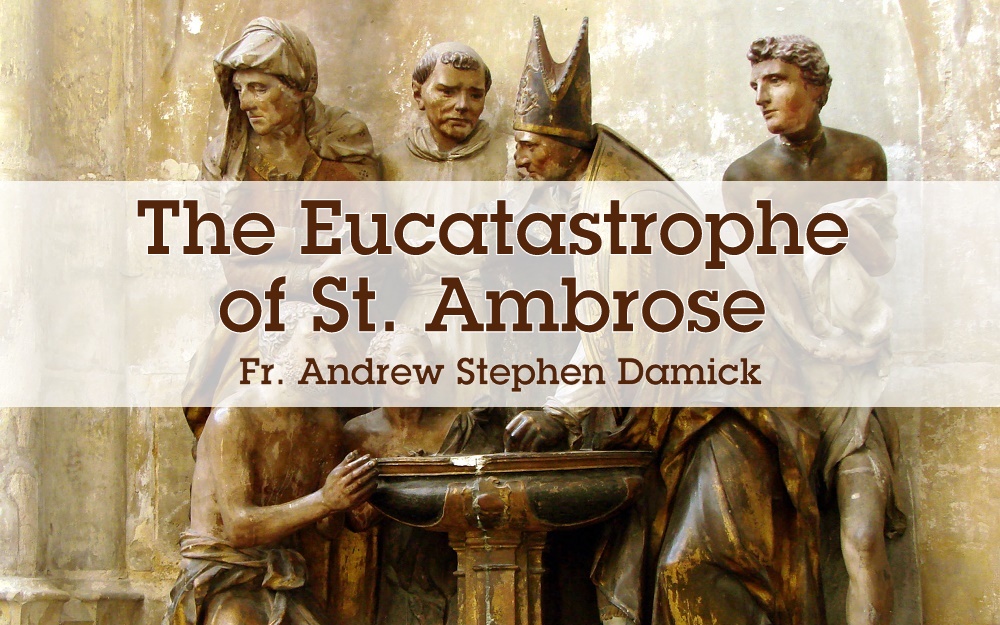
The term eucatastrophe was coined by Oxford professor J. R. R. Tolkien to refer to a sudden turn of events that makes for a happy ending. It’s not the same as the deus ex machina of classical theatre, which quite often is really almost a non sequitur that ends a tale in some entirely implausible way.
I thought of this word today when reading the most famous piece of the Life of St. Ambrose of Milan, whose feast is celebrated today, December 7:
After the death of Auxentius, the Arian Bishop of Milan, a violent dispute arose among the Orthodox and Arians about who would succeed him. Ambrose, desiring as Governor of the province to restore the peace, attempted to mediate between them. As he spoke to the people, eloquently persuading them to elect a new bishop without tumult and disorder, a young child, inspired from on high, suddenly cried out “Ambrose, bishop!” To his astonishment and dismay, the people immediately took up this cry themselves, and over his many protests, he was raised to the episcopal throne of Milan on December 7, 374.
It’s notable that St. Ambrose’s feast marks his consecration as bishop rather than his repose on April 4, 397. And it’s perhaps even more notable that at the time of his election as bishop of Milan, he was actually not even baptized but rather a catechumen. In those days, it was common for many to delay baptism, often until the age of 33, as some thought that the sins typical of youth would be too great to repent of if committed after baptism. (In some periods, baptism was delayed by some even until the deathbed. This mistaken form of piety was ultimately corrected in Church history.)
When the crowd began shouting for his election, Ambrose reminded them that he was not yet baptized and even, as provincial governor, went and gave harsh punishments to some criminals, hoping that the people would be frightened and change their minds about having him as their bishop. They would not be swayed, however, and he was baptized and then ordained as bishop. At his consecration, the emperor marveled that he had appointed this man as a governor but God had now appointed him as a bishop.
It is often hard to see how God might choose to work out a eucatastrophe in our own lives, though the Incarnation itself is certainly, as Tolkien called it, “the eucatastrophe of human history.” But God does often give us such “little” moments for our local needs. We cannot really be looking for them, because they are, by nature, not really what we were expecting. (Even Jesus, while the expected Messiah, was not the Messiah they were expecting.) But in the midst of our sorrows and difficulties, we can remain faithful. It is okay to hope that God will intervene in some sudden way, but ultimately our hope is for the end of our lives, the promised vindication of those who are faithful to Jesus Christ when He calls His people to Himself.



